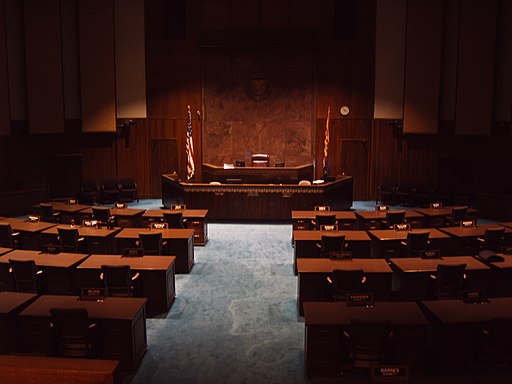In Arizona, a campaign for a ballot initiative that would eliminate partisan primaries submitted signatures on July 3, 2024.
Make Elections Fair, the campaign sponsoring the initiative, submitted 584,124 signatures to state officials. At least 383,923 signatures must be verified for the initiative to make the ballot.
The initiative would amend the Arizona Constitution to eliminate partisan primaries and replace them with an electoral system where individuals may vote for a candidate, regardless of the voter's or candidate's party affiliation. It would place all primary candidates on the same ballot, regardless of political party. The amendment would allow for the state legislature to pass a law providing for how many candidates would advance from the primary to the general election. It would provide for two to five candidates to advance to the general election. In other words, a top-two primary system could be used, or a top-five primary system, or a number in between. If a top-three, top-four, or top-five primary system is used, ranked-choice voting (RCV) would then be used in the general election.
Under the amendment, if implementing legislation isn’t in effect by November 1, 2025, the secretary of state would decide how many candidates will advance to the general election and the voter ranking process that would be used.
In Arizona, semi-closed primaries are used to elect candidates to represent a political party in a general election.
Chuck Coughlin, a political consultant for Make Elections Fair, said, “Put the best candidates on the ballot. Let everybody vote. … Every election, every candidate, every election. We think that that notion of fairness will work very well with the electorate.”
The Arizona Republican Party opposes the measure. Jeff DeWit, chairman of the Arizona Republican Party, said, “Republicans don’t want Democrats voting for our primary candidates, and I’m sure Democrats don’t want us voting for theirs. All unaffiliated voters, or as they are commonly referred to as, Independents, already can and do vote on the primaries to make their voices heard.”
A competing constitutional amendment was referred to the ballot by the Arizona State Legislature, which would amend the constitution to require partisan primaries for partisan offices. This is the current practice in Arizona; the constitutional amendment would add this practice to the constitution, prohibiting future changes without another constitutional amendment.
As the ballot initiative, which is a constitutional amendment, and the legislative constitutional amendment conflict, the one with the most votes would be enacted if both receive a majority of votes.
Signatures were submitted for two other initiatives on July 3—a constitutional amendment that would provide for the fundamental right to abortion in the state, and an initiative that would raise the minimum wage to $18 per hour.



